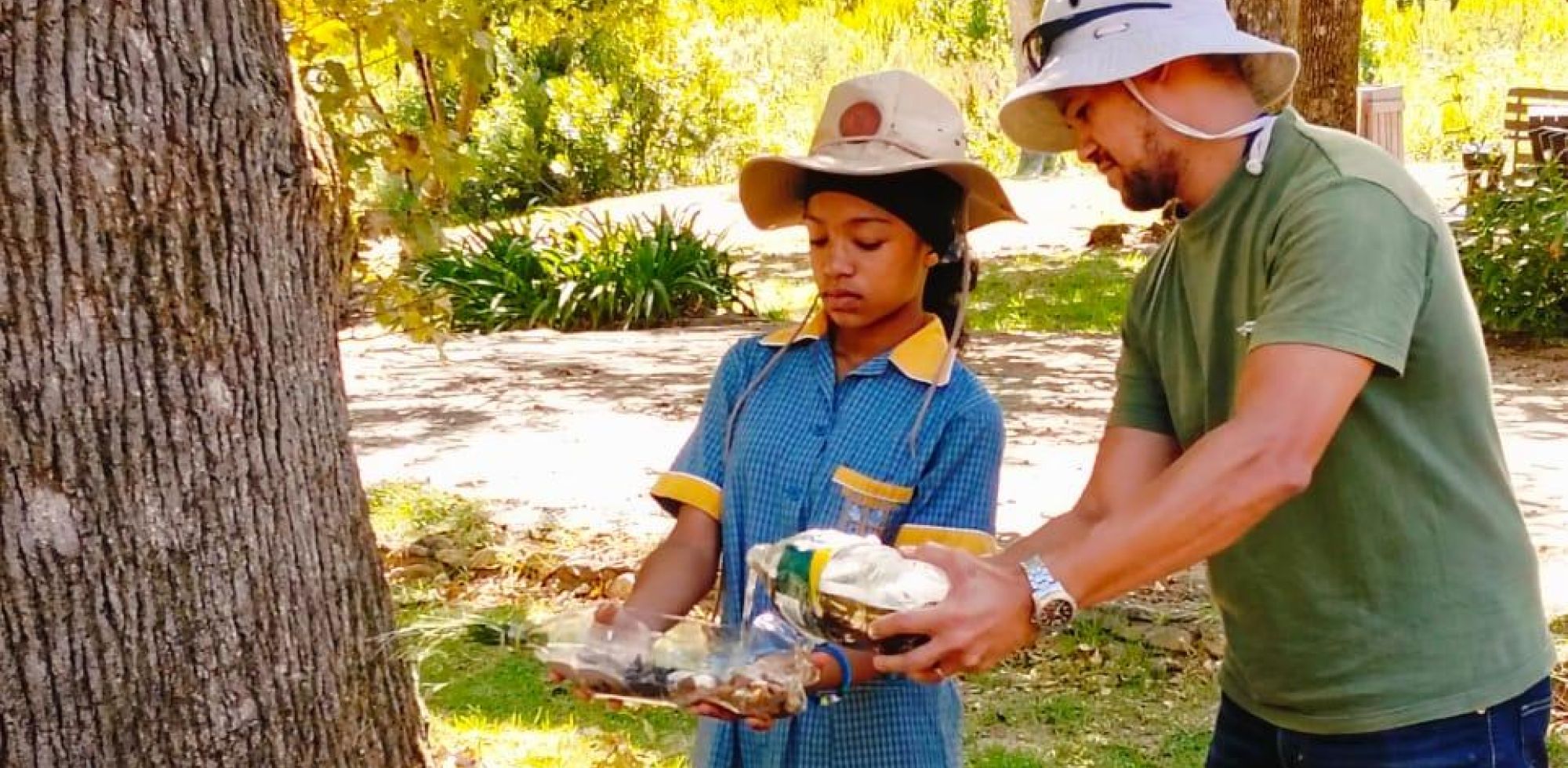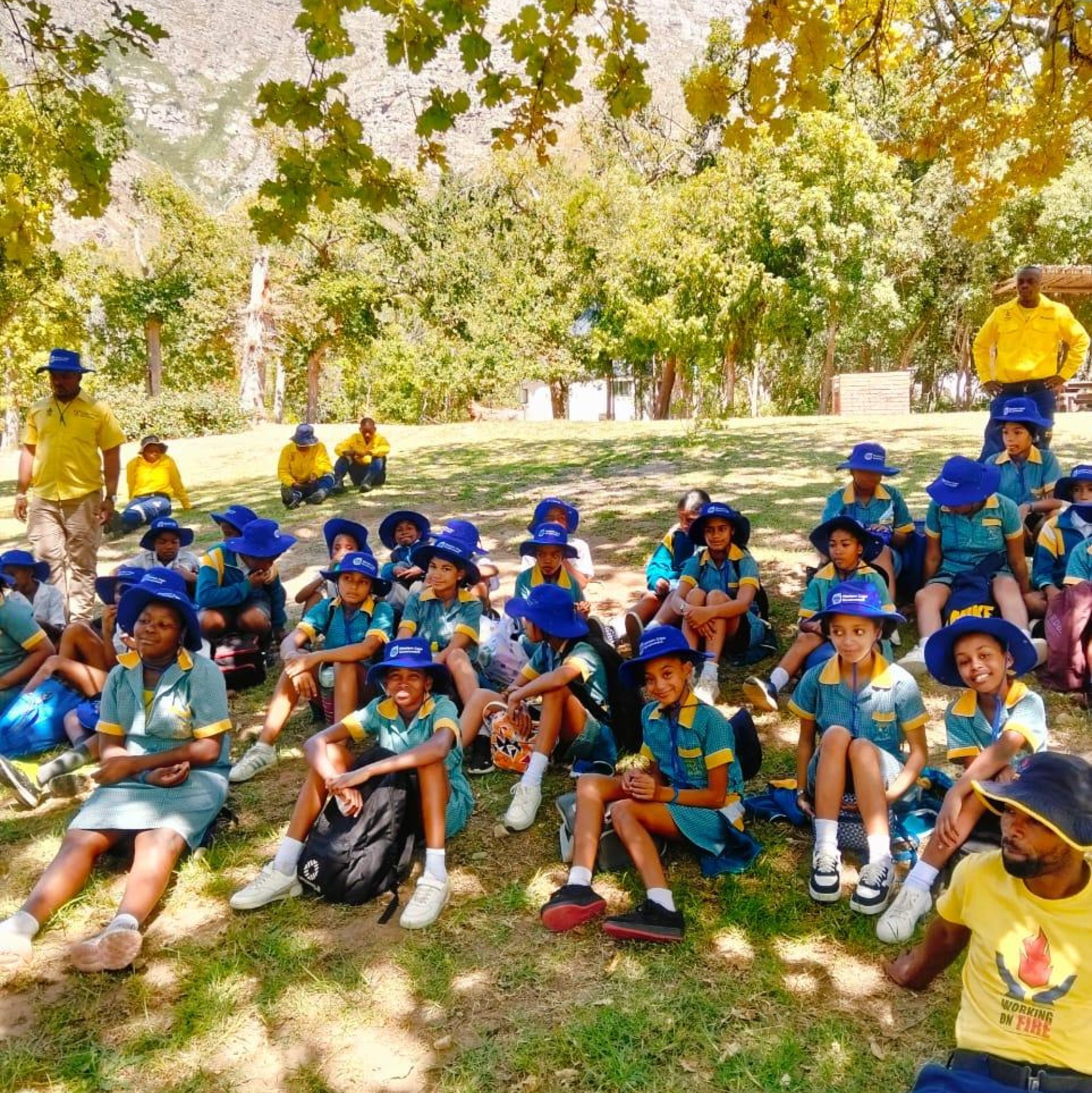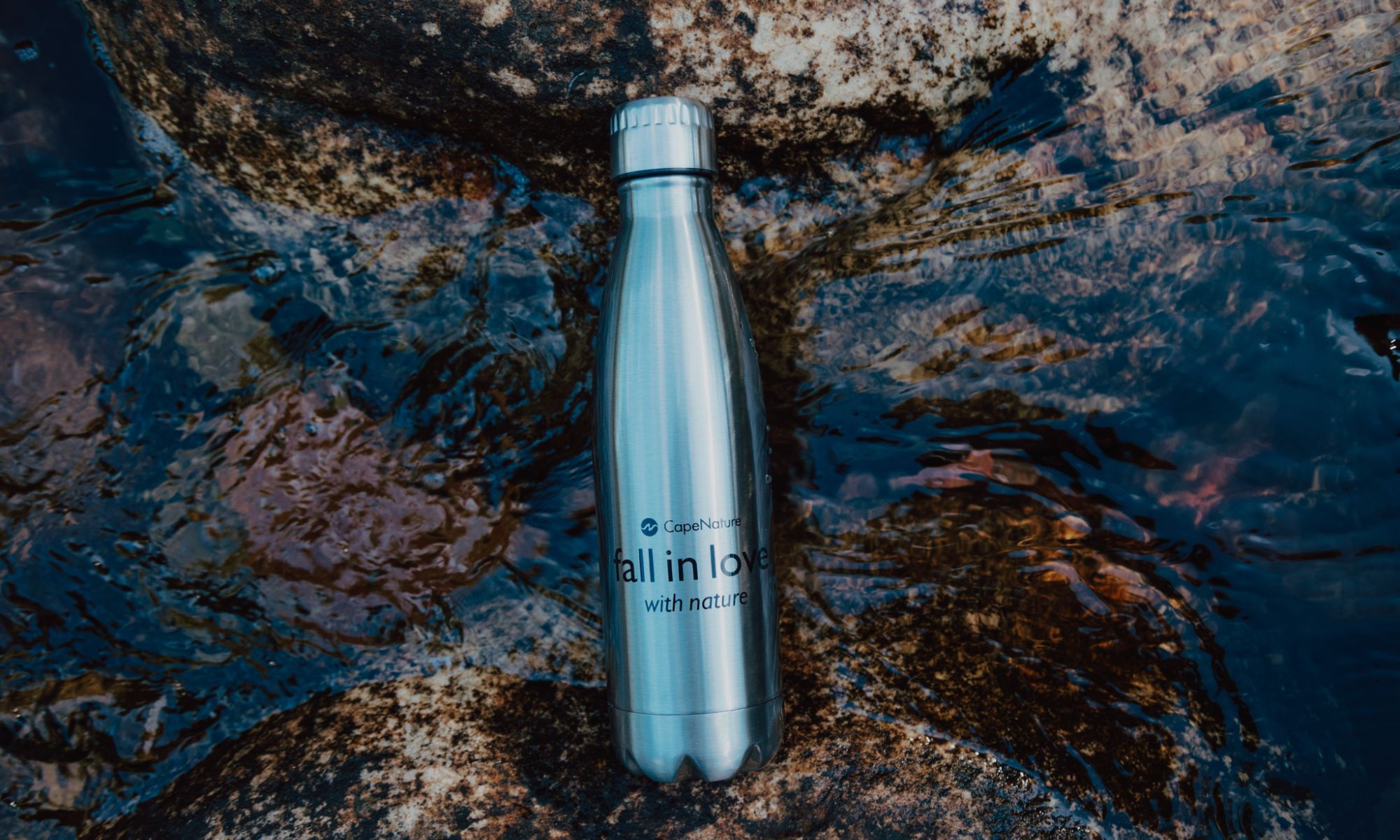
Young learners celebrate World Wetlands Day with interactive conservation education
World Wetlands Day is observed annually on 2 February in commemoration of the signing of the Ramsar Convention on Wetlands. The 2025 theme, "Protecting Wetlands for Our Common Future", highlights the urgent need to safeguard these ecosystems through collaboration on policies, regulations, and community initiatives that drive conservation and sustainable use.
This year, CapeNature, in collaboration with the Western Cape Department of Environmental Affairs and Development Planning, celebrated World Wetlands Day at Assegaaibosch Nature Reserve on 7 February. Grade Six learners from Rietenbosch Primary School participated in an educational event designed to deepen appreciation and understanding of wetlands, inspire positive environmental action, and promote overall wellbeing.
Life and biodiversity thrive in wetlands. Wetlands provide the home or breeding ground of many endangered and threatened species, and a multitude of endemic plants and animals can only survive in certain wetland locations. Beyond the clean water and food that wetlands provide, they help protect against natural disasters by mitigating the impact of storm surges, floods, and droughts.
Healthy wetlands are critical for climate mitigation, adaptation, biodiversity, and human health; yet unsustainable development, pollution, and climate change continue to threaten these essential ecosystems.
Wetlands are vital ecological infrastructure that support biodiversity, safeguard water resources, and other essential services to communities. Our department continues to prioritise wetland protection and rehabilitation in the province through strategic partnerships with CapeNature and other organisations. Education is key to fostering an appreciation for wetlands, and initiatives like this contribute to future generations understanding their value in making our planet more liveable and the important role they play in our delicate ecosystem.
World Wetlands Day 2025 holds particular significance this year as it shares the same theme with the 15th Meeting of the Conference of the Contracting Parties to the Convention on Wetlands (COP15), scheduled for 23-31 July 2025 in Victoria Falls, Zimbabwe. Every three years, representatives from governments worldwide convene to discuss, assess and implement decisions on wetland conservation and sustainable use.
Providing outdoor learning experiences is at the heart of CapeNature’s awareness programmes. This collaboration offers learners a hands-on opportunity to discover the wonders of wetlands, understand their conservation importance, and recognise the benefits they provide to both nature and people. Through interactive activities, we want to inspire a lifelong connection with the environment.
Throughout February, CapeNature will offer facilitated, curriculum-aligned wetland education programmes. Teachers and parents interested in these opportunities can contact learning@capenature.co.za. Educational resources are also available in the learning library.







